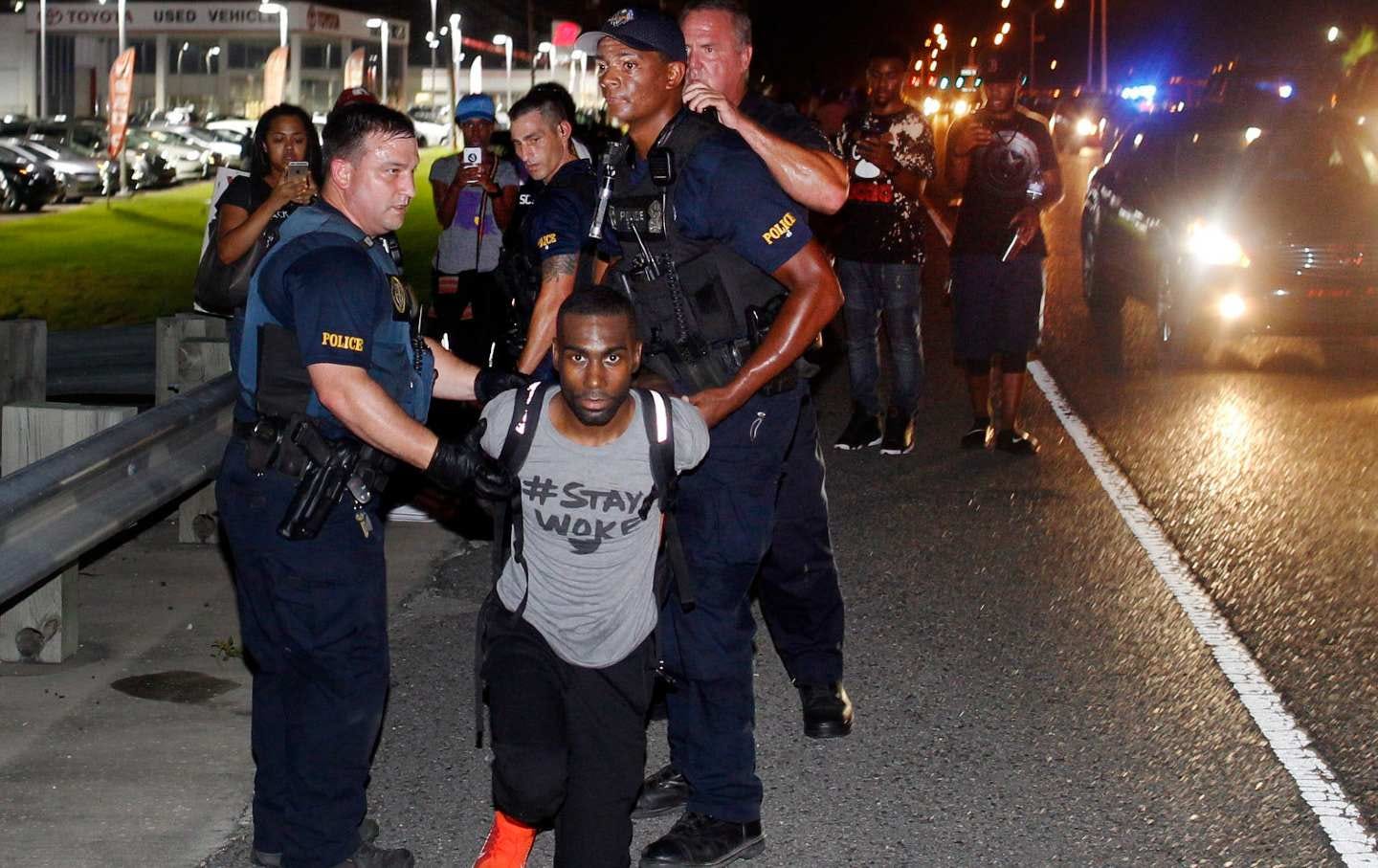The Supreme Court Just Effectively Abolished Mass Protests in Three States
While we were laughing at an authoritarian-in-waiting for snoozing during his own criminal trial, the Justices were paving the way for his authoritarian plans.
It’s been one of those weeks with more news than the human brain was made to process. The whole time, I couldn’t shake the feeling that something important was happening below the surface that we weren’t quite piecing together.
Sure enough, leave it to the Supreme Court to pull the ultimate bait-and-switch.
On Tuesday, the Court heard arguments on whether a law that prohibits obstructing a government proceeding can be used against January 6th insurrectionists.1 The Justices expressed concern that prosecutors were applying the law too broadly. They implied that if this obstruction law can be used against the January 6th rioters, then prosecutors could use it against all sorts of protesters—which could deter people from wanting to hold peaceful protests in the future. How considerate of them.
Turns out, this Court is only friendly to certain protesters.
In a separate case, the Court refused to hear an appeal from a Black Lives Matter activist.
The effect of rejecting the BLM case is that a person who organizes a protest can now be personally sued if a single protest attendee commits an illegal act (even one as minor as a traffic violation) that leads to someone being injured. This is now the law in three states where the lower court’s ruling applies: Texas, Mississippi, and Louisiana.
The Supreme Court’s move effectively eliminates the right to mass protest in those three states. If protest organizers—who typically aren’t the richest people around—face financial ruin when a single protester gets out of line, they’re absolutely going to organize fewer protests.

Legal commentators think the Court will eventually reverse this ruling. There’s just too much First Amendment precedent in favor of the right to protest.
But if Donald Trump wins a second term, any future reversal will be too little, too late for democracy. Here’s why:
Trump has promised “to be a dictator for one day” so he can “close the border.” That doesn’t just mean building a wall this time around. Trump has promised to “carry out the largest domestic deportation operation in American history,” which will involve rounding up tens of thousands of humans into military-style detention camps near the border.
The civil rights violations would be rampant. Thousands of patriotic Americans would want to take to the streets of Texas in protest to stand up for the rights of the wrongfully detained—if they could.
But with Monday’s decision, the Court has essentially stopped those protests in their tracks an entire year in advance.
The Justices paved the way for authoritarianism while we all joked about the authoritarian taking a snooze on the first day of his trial.
Register, vote, and donate if you can. Elections have very real consequences.
The basic argument is whether the law only applies to evidence tampering or also other kinds of “obstruction.”
